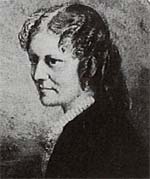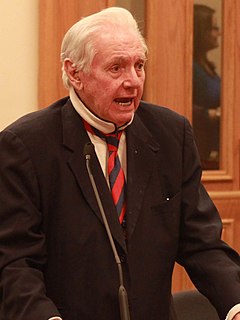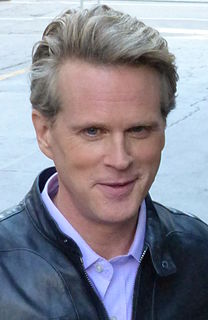A Quote by Anna Sewell
He has known joy and violence. Felt the warmth of children and the cruelty of abuse. He has nearly died saving lives and merely been killed by a drunken act. He has known the finery of grand estates and the filth of stinking slums. He has survived fire and flood, starvation and torment. And nothing could break his spirit-or his great love. This is HIS life. He is called the horse.
Related Quotes
There were times when it appeared to Dorian Gray that the whole of history was merely the record of his own life, not as he had lived it in act and circumstand, but as his imagination had created it for him, as it had been in his brain and in his passions. He felt that he had known them all, those strange terrible figures that had passed across the stage of the world and made sin so marvellous, and evil so full of subtlety. It seemed to him that in some mysterious way their lives had been his own.
His name was Michael R. Ross. I've never known what the "R" was for. He died, however, before I was 7. But he and I seemed to have had quite a nice relationship. He always called me grandlady, and he'd always talk to you as a person rather than as a child. So, I would go with him for his routes in his horse and buggy. So, my memory of him is pretty sharp, plus it has been accentuated by the stories that come out of the family.
Our God...is a consuming fire. And if we, by love, become transformed into Him and burn as He burns, His fire will be our everlasting joy. But if we refuse His love and remain in the coldness of sin and opposition to Him and to other men then will His fire (by our own choice rather than His) become our everlasting enemy, and Love, instead of being our joy, will become our torment and our destruction.
Was his life nothing? Had he nothing to show, no work? He did not count his work, anyone could have done it. What had he known, but the long, marital embrace with his wife. Curious, that this was what his life amounted to! At any rate, it was something, it was eternal. He would say so to anybody, and be proud of it. He lay with his wife in his arms, and she was still his fulfillment, just the same as ever. And that was the be-all and the end-all. Yes, and he was proud of it.
I was blessed enough to meet Pope John Paul when I was about 19 or 20 years old in the Vatican; I had that privilege, .. My mother took me to visit him and I remember distinctly his incredible charisma and personal charm and his warmth and compassion. You felt it immediately the minute you met him, and that spirit I came away with, having met the man, is something that I've been constantly working on to infuse the character with, so that we can have his spirit and his love and his compassion, because that's really the essence of the man.
The love of a dog for his master is notorious; in the agony of death he has been known to caress his master, and everyone has heard of the dog suffering under vivisection, who licked the hand of the operator; this man, unless he had a heart of stone, must have felt remorse to the last hour of his life.
Never in his life had Edward been cradled like a baby. Abilene had not done it. Nor had Nellie. And most certainly, Bull had not. It was a singular sensation to be held so gently and yet so fiercely, to be stared down at with so much love. Edward felt the whole of his china body flood with warmth. (page 128)
A man is known by the books he reads, by the company he keeps, by the praise he gives, by his dress, by his tastes, by his distastes, by the stories he tells, by his gait, by the notion of his eye, by the look of his house, of his chamber; for nothing on earth is solitary but every thing hath affinities infinite.
Suddenly Yankel was overcome with a fear of dying, stronger than he felt when his parents passed of natural causes, stronger than when his only brother was killed in the flour mill or when his children died, stronger even than when he was a child and it first occurred to him that he must try to understand what it could mean not to be alive -- to be not in darkness, not in unfeeling -- to be not being, not to be.
His face set in grim determination, Richard slogged ahead, his fingers reaching up to touch the tooth under his shirt. Loneliness, deeper than he had never known, sagged his shoulders. All his friends were lost to him. He knew now that his life was not his own. It belonged to his duty, to his task. He was the Seeker. Nothing more. Nothing less. Not his own man, but a pawn to be used by others. A tool, same as his sword, to help others, that they might have the life he had only glimpsed for a twinkling. He was no different from the dark things in the boundary. A bringer of death.
And they beat. The women for having known them and no more, no more; the children for having been them but never again. They killed a boss so often and so completely they had to bring him back to life to pulp him one more time. Tasting hot mealcake among pine trees, they beat it away. Singing love songs to Mr. Death, they smashed his head. More than the rest, they killed the flirt whom folks called Life for leading them on.
Words were one of the most powerful forces known— or unknown— to man. The Most High had created this world with His words. And humans, who had been fashioned in His image, could direct the entire course of their lives with their words, their mouths as the rudder on a ship, as the bridle on a horse. They produced with their words. They destroyed with their words.
Leonard [Nimoy] was such a teacher for me. He was one of the most fully realized human beings I have ever known on every level - in his personal life with his personal relationships and his love for his wife and his evolution with his family. Then as an artist, as an actor, as a writer, as a poet, and as a photographer. He never stopped.





































